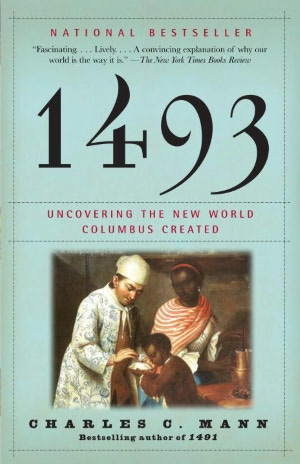In his book 1493: Uncovering the New World Columbus Created, Charles C. Mann describes the globalization of tobacco. Found in the Western Hemisphere, tobacco was one of the first successful exports from North American and Caribbean colonies to Europe. Smoking releases Nicotine, a mild stimulant, and is addictive. The practice of smoking spread quickly worldwide, as eventually did the the agricultural production of tobacco and the industrial production of cigarettes and other tobacco products.
I got to thinking about the history of globalization of psychoactive drugs through commerce.
I assume that alcoholic drinks, tea and coffee, as well as chocolate all spread worldwide in part because they make you feel good because the alcohol, caffeine and theobromine they contain, relatively mild drugs, make you feel good. Of course, alcohol in a beverage may make it safer to drink, as does boiling water for tea of coffee -- an important consideration before safe, potable water supplies were commonly available. Moreover, alcoholic beverages travel better than fresh foods, as do the dried tea leaves, coffee beans and roasted cacao beans. All of these have become the bases of global industries.
Opium has been used since ancient times; its use is documented in the Sumerian, Assyrian, Egyptian, Indian, Minoan, Greek, Roman, Persian and Arab Empires. However, I think of the British commercializing the production of opium in India to sell into China, or the Dutch commercializing the opium industry in Indonesia. Opium is simply a drug, with no redeeming social value. In both cases, the imperial power used coercive force to protect the commercial sales of opium against prohibition by the governments of the consumers. Of course, with the transformation of opium into heroin the global trade in opiates has been largely criminalized. Still, in some sense the trade in opium, heroin and morphine is a global industry.
Marijuana and Cocaine similarly have become global trade items in criminal industries based on agricultural products that were once products used by small populations of indigenous peoples. More recently, of course, we see globalization of man made drugs.
In all cases there is a lot of money to be made catering to people's willingness to ingest psychotropic chemical substances, even though they have no nutritional nor medicinal benefits and indeed may do great harm. In all cases modern industries have developed to make profits catering to markets, even when doing so requires the enterprises to be criminal. How odd!
Of course, the Virginia planters who began the commercial production of tobacco and the the British merchants who organized the transport to and sale of tobacco in England did not begin to understand the dangers of smoking. One assumes that the people who first started commercial distribution of opium also failed to understand the damage from that trade. It is only later that enterprises run be people who simply didn't care about the damage they did became criminal multinationals.
Previous post mentioning 1493.

No comments:
Post a Comment